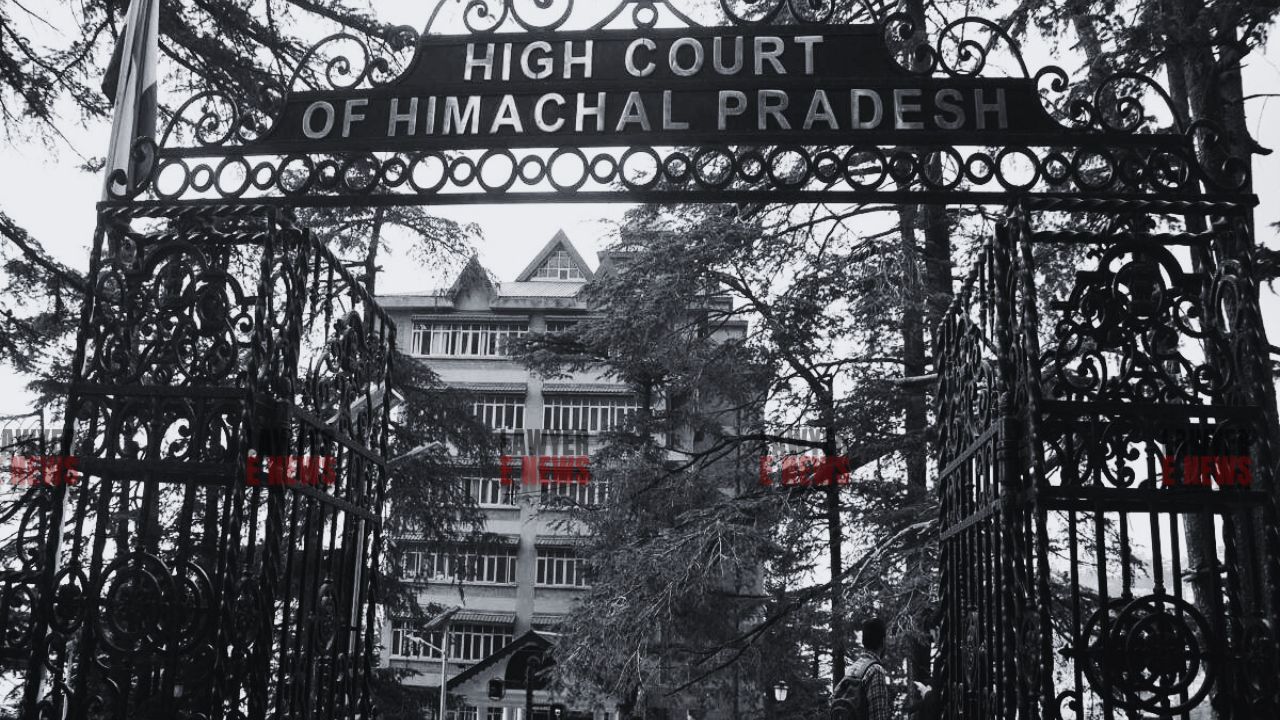-
by Admin
15 February 2026 2:36 AM



Himachal Pradesh High Court delivered a significant ruling in the case of Bal Krishan Sharma vs. Bal Krishan (RSA No. 259 of 1995). The court ruled against the appellant, invoking the principle of res judicata, affirming that the matter had already been adjudicated in a previous case, thereby barring any further litigation on the same issues. This judgment reinforces the finality of decisions under the res judicata doctrine in civil litigation.
The dispute originated over a piece of land in Mandi Town, Himachal Pradesh, where the plaintiff, Bal Krishan Sharma, sought permanent prohibitory and mandatory injunctions against the defendant, Bal Krishan. The conflict centered around the use of a gair mumkin sarak (non-agricultural road) on Khasra No. 2969/1764, which the plaintiff claimed to have acquired an easementary right to use as a path. However, the defendant was accused of constructing on this path, allegedly blocking the plaintiff's access.
The trial court initially ruled partially in favor of the plaintiff, granting the permanent prohibitory injunction but dismissing the claim for a mandatory injunction. Both parties appealed to the District Court (First Appellate Court). The District Judge reversed the trial court's decision, dismissing the plaintiff's suit entirely, which prompted the current second appeal before the High Court.
The main legal question before the High Court was whether the First Appellate Court erred in dismissing the plaintiff's claims, particularly concerning the easementary rights over the disputed road. The substantial questions of law included:
Whether a person can be denied easementary rights on the grounds that an alternative path is available.
Whether the revenue records and registered sale deed showing the road as a public pathway were improperly disregarded.
Whether the First Appellate Court could alter findings on issues not raised by either party.
Whether the principle of res judicata applied due to the dismissal of a related appeal.
Justice Virender Singh, who presided over the case, focused on the fourth substantial question of law regarding the dismissal of RSA No. 278 of 1995. The court relied heavily on the precedent set by the Division Bench of the same court in the case of Ramesh Chand vs. Om Raj & Ors (2022(2) Shim.L.C. 1145), which clarified the application of res judicata in cases where multiple appeals are filed against the same judgment.
The court concluded that the dismissal of RSA No. 278 of 1995 in default barred the present appeal under the principle of res judicata. The ruling explained that since the related appeal was dismissed, the findings in that case became final and binding, precluding the appellant from pursuing further litigation on the same issues.
The High Court dismissed the appeal, holding that the case was barred by res judicata, as the earlier dismissal of a related appeal (RSA No. 278 of 1995) rendered the current appeal untenable. This ruling underscores the importance of timely and comprehensive litigation and appeals in civil matters to avoid being precluded by doctrines like res judicata.
Date of Decision: October 4, 2024
Bal Krishan Sharma vs. Bal Krishan
